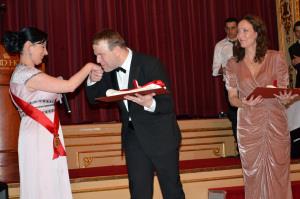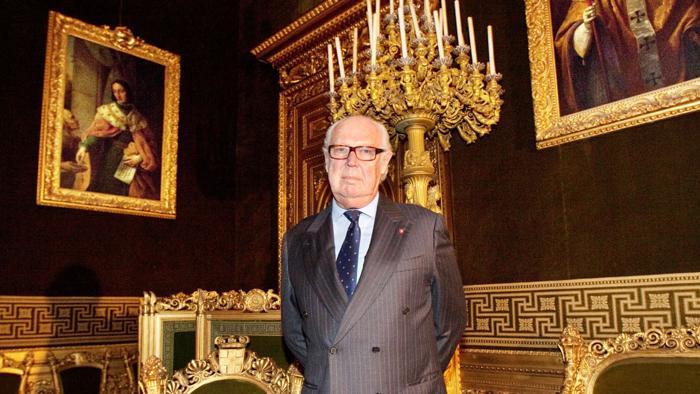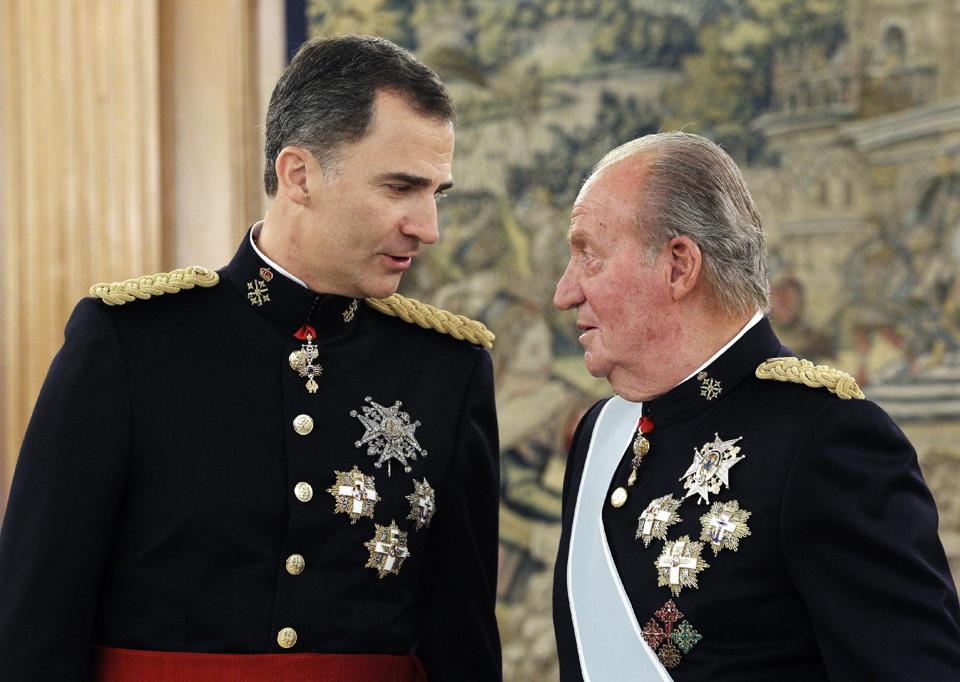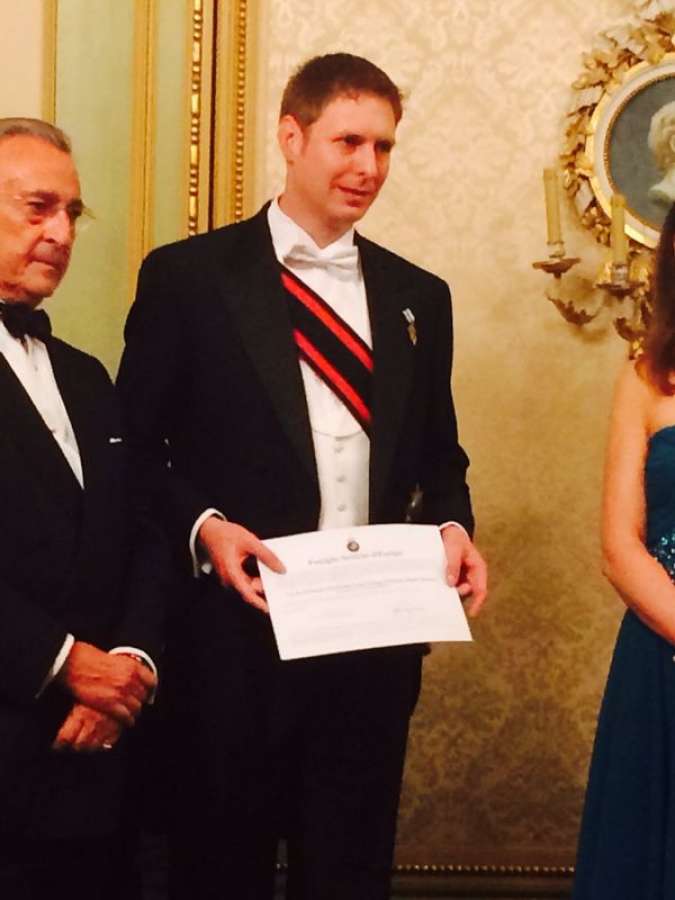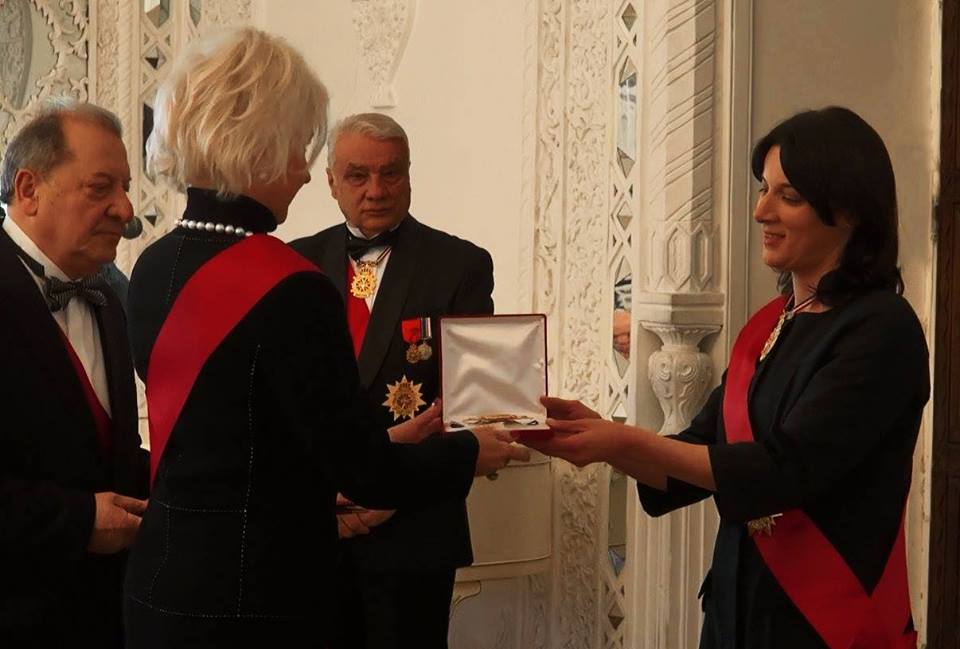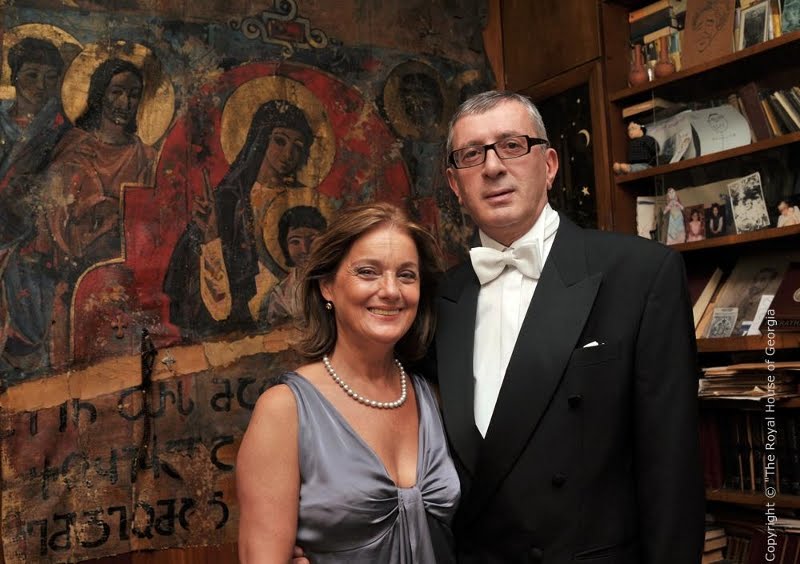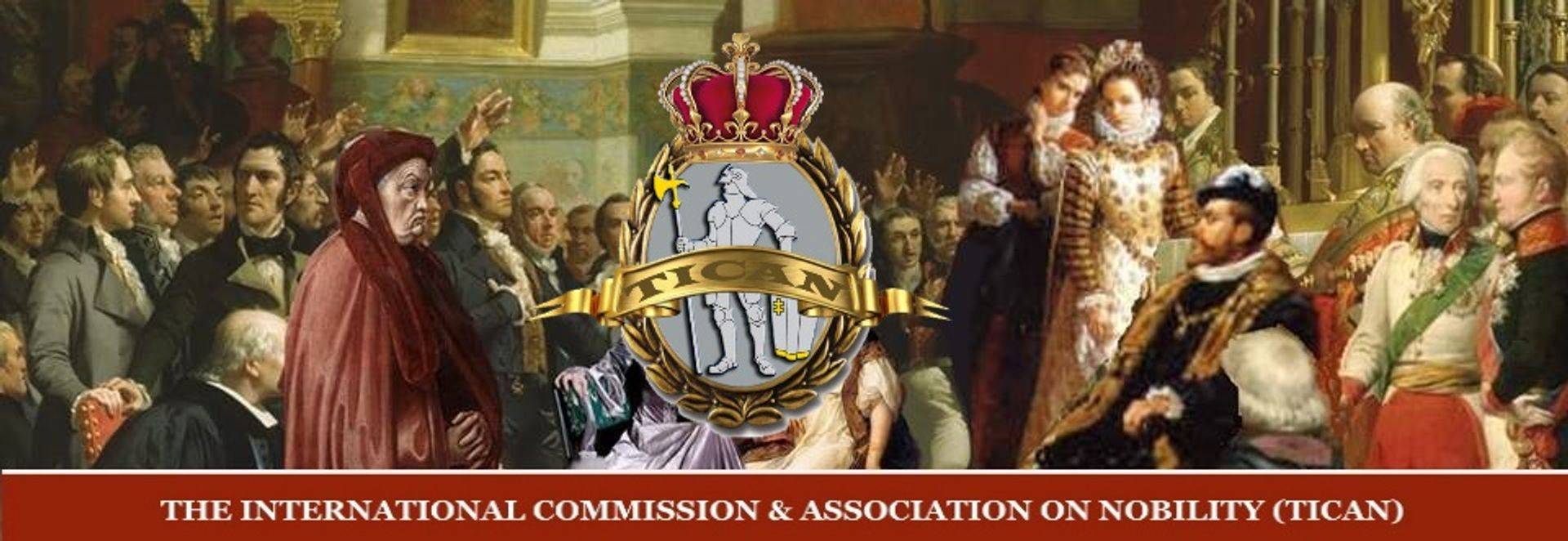
Title
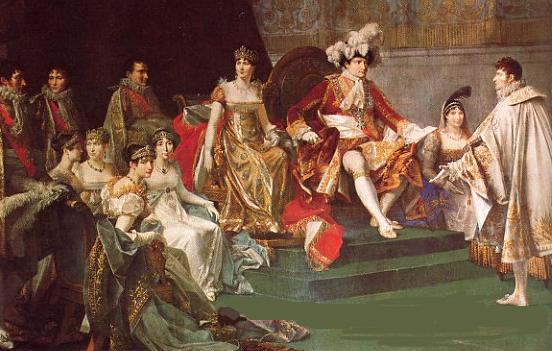
The Kingdom of Westphalia
The Kingdom of Westfalia was created by Napoleon in December 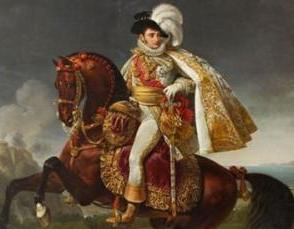 1807 following the treaty of Tilsit. The new Kingdom was composed of parts of Hannover, Brunswick, Saxony and most of Hesse-Kassel. Westfalia was entered as a charter member of the newly formed Confederation of the Rhine. As such it was obliged to provide a 25,000 strong contingent to the Grande Armee in the event of war.
1807 following the treaty of Tilsit. The new Kingdom was composed of parts of Hannover, Brunswick, Saxony and most of Hesse-Kassel. Westfalia was entered as a charter member of the newly formed Confederation of the Rhine. As such it was obliged to provide a 25,000 strong contingent to the Grande Armee in the event of war.
(Picture right: Jerome-Napoleon, King of Westphalia. A French king on a German throne).
The Westphalia army created to meet this requirement was closely modeled on that of France and by the end of 1808 comprised the royal garde grenadier and jäger battalions, the chevau-leger regiment and a garde-du-corps squadron. The line consisted of an elite jäger-carabinier battalion (normally attached to the Garde), six line infantry regiments each of two battalions, one light battalion, one cuirassier regiment, one chevau-leger regiment plus national guards and veterans units.
In July of 1808 the 2nd cuirassier, 7th and 8th Line infantry regiments and  the 2nd light infantry battalion were raised. In 1810 the 1st and 2nd hussar regiments were raised, in 1811 the 3rd light infantry battalion and two line infantry regiments (2nd and 7th) added a third field battalion. In 1812 a new two battalion garde infantry regiment (fusiliers) was raised, together with the 9th line regiment, the 4th light battalion and the 2nd chevau-leger regiment.
the 2nd light infantry battalion were raised. In 1810 the 1st and 2nd hussar regiments were raised, in 1811 the 3rd light infantry battalion and two line infantry regiments (2nd and 7th) added a third field battalion. In 1812 a new two battalion garde infantry regiment (fusiliers) was raised, together with the 9th line regiment, the 4th light battalion and the 2nd chevau-leger regiment.
Following the disastrous retreat from Russia less than 1,000 Westphalia survivors gathered at Thorn during January 1813. The garde-du-corps squadron, the grenadier-garde, jäger-garde, cheval-legers-garde, the jäger-carabinier and 3rd light battalions, the 1st cheval-legers and the 1st & 2nd cuirassiers were all in Westphalia and disbanded when the end of the Kingdom came in September 1813.
The Treaty of Westphalia

The Peace of Westphalia, also known as the treaties of Münster and Osnabrück respectively, refers to the series of treaties that ended the Thirty Years' War, the Eighty Years' War, and "officially" recognized the United Provinces and Switzerland. The treaty was signed October 24 1648, and meant an end to the long conflict between Catholic and Protestant forces.
The precedent is what was done after the Thirty Years War and the Peace of Westphalia. The end of the Thirty Years War was in 1648; it was a war which rampaged in waves, like tornadoes, for 30 years, involving many European countries, including Germany, the Hapsburg Empire, France, Sweden, Bohemia, and Denmark.
The Peace of Westphalia, when all the war parties came together, was the first time that a European community of sovereign states was established. And it was only possible because all of its members recognized each other as having equal legal standing, and guaranteed each other their independence. They had to recognize their international legal treaties as binding, if they wanted to be an international community of law.
The results of the treaty were wide ranging. Among other things, the Netherlands gained independence from Spain, ending the Eighty Years' War, and Sweden gained Pomerania, Wismar and Bremen-Verden. The power of the Holy Roman Emperor was broken, and the rulers of the German states were again able to determine the religion of their lands. The treaty also gave Calvinists legal recognition. Three new great Powers arose from this peace: Sweden, the United Netherlands and France. Sweden's time as a Great Power was to be short lived, however.
Such principles exist in the treaties of 1648. Some were expressed for the first time in history. These negotiations lasted for four years, during 1644-48, and in the end, Protestants, Catholics, monarchies, and republican forms of government, were treated as having equal status in negotiations and in the treaty.
The Peace of Westphalia marked the end of the Holy Roman Empire as an effective institution and inaugurated the modern European state system. The chief participants in the negotiations were the allies Sweden and France; their opponents, Spain and the Holy Roman Empire; and the various parts of the empire together with the newly independent Netherlands. Earlier endeavors to bring about a general peace had been unsuccessful. The compact known as the Peace of Prague (May, 1635) marked a step in the direction of peace and signaled the belief of the Protestant powers that the Swedish forces on which they depended would not be able to maintain a preponderant role in Germany.
The conditions of the compact were not in accord with Richelieu's design to break up the imperial power, however, and the war continued despite offers of mediation from the pope and the king of Denmark. Congresses were proposed and discarded.
It was not until Dec. 25, 1641, that a preliminary treaty provided for two concurrent conferences—at Münster and Osnabrück. The conferences, fixed for 1643, met in 1644 and began serious work in 1645. The treaties were signed Oct. 24, 1648. Through the French and Swedish "satisfactions" the power and influence of the Holy Roman Empire and of the house of Hapsburg were lessened. The sovereignty of the German states was recognized, and the empire continued only in name.
France, emerging as the dominant European power, had its sovereignty over three bishoprics (Metz, Toul, and Verdun) and over Pinerolo confirmed. Breisach was made over to France. Alsace was ceded despite ambiguity of title, and France was allowed to fortify a garrison at Philippsburg.
Sweden obtained W Pomerania, including Stettin and the island of Rügen; the archbishopric (but not the city) of Bremen and the adjoining bishopric of Verden; and Wismar and the island of Pöl. It was agreed that the Upper Palatinate and the old electoral vote should remain with Bavaria, while the Rhenish Palatinate, with a new electoral vote, was assigned to Charles Louis, the son of Frederick the Winter King.
The Swiss Confederation and the independent Netherlands were explicitly recognized. The elector of Brandenburg received compensation for Pomerania; the duke of Mecklenburg, for Pöl and part of Wismar. The outcome of the religious deliberations was significant. Territorial rulers continued to determine the religion of their subjects, but it was stipulated that subjects could worship as they had in 1624. Terms of forced emigration were eased; Calvinism was recognized; and rulers could allow full toleration, at their discretion.
Finally, religious questions could no longer be decided by a majority of the imperial estates. Future disputes were to be resolved by a compromise between the confessions. The era of religious warfare was over, and a general attempt had been made toward religious toleration.

The majority of the treaty can be attributed to the work of Cardinal Mazarin who was de facto leader of France at the time. France came out of the war in a far better position than any other Power and was able to dictate much of the treaty.
(Picture on right: Cardinal Jules Mazarin 1602-61, French statesman, cardinal of the Roman Catholic Church. His original name was Giulio Mazarini)
Westphalia Sovereignty
(From Wikipedia, the free encyclopedia)
“Westphalia sovereignty is the concept of nation-state sovereignty based on two principles: territoriality and the exclusion of external actors from domestic authority structures.
Many academics have asserted that the international system of states, multinational corporations and organizations which exists today began in 1648 at the Peace of Westphalia. Both the basis and the result of this view have been attacked by revisionist academics and politicians alike, with revisionists questioning the significance of the Peace, and commentators and politicians attacking the Westphalia System of sovereign nation-states.”
Modern views on the Westphalian System
(From New World Encyclopedia http://www.newworldencyclopedia.org/entry/Peace_of_Westphalia )
The Westphalian System is used as a shorthand by academics to describe the system of states which the world is made up of today.
In 1998 a symposium on the continuing political relevance of the Peace of Westphalia, then-NATO Secretary General Javier Solana said that "humanity and democracy [were] two principles essentially irrelevant to the original Westphalian order" and levied a criticism that "the Westphalian system had its limits. For one, the principle of sovereignty it relied on also produced the basis for rivalry, not community of states; exclusion, not integration."
In 2000, then-German foreign minister Joschka Fischer referred to the Peace of Westphalia in his Humboldt Speech, which argued that the system of European politics set up by Westphalia was obsolete: "The core of the concept of Europe after 1945 was and still is a rejection of the European balance-of-power principle and the hegemonic ambitions of individual states that had emerged following the Peace of Westphalia in 1648, a rejection which took the form of closer meshing of vital interests and the transfer of nation-state sovereign rights to supranational European institutions."
In the aftermath of the March 11, 2004 Madrid terrorist attacks, Lewis ‘Atiyyatullah, who claims to represent the terrorist network al-Qaeda, declared that "the international system built-up by the West since the Treaty of Westphalia will collapse; and a new international system will rise under the leadership of a mighty Islamic state.” It has also been claimed that globalization is bringing an evolution of the international system past the sovereign Westphalian state.
However, European nationalists and some American paleoconservatives such as Pat Buchanan hold a favorable view of the Westphalian state. Supporters of the Westphalian state oppose socialism and some forms of capitalism for undermining the nation-state. A major theme of Buchanan's political career, for example, has been attacking globalization, critical theory, neoconservatism, and other philosophies he considers detrimental to today's Western nations.
Legitimacy in International Law (Book)
In recent years the question of the legitimacy of international law has been discussed quite intensively. Such questions are, for example, whether international law lacks legitimacy in general; whether international law or a part of it has yielded to the facts of power; whether adherence to international legal commitments should be subordinated to self-defined national interests; whether international law or particular rules of it - such as the prohibition of the use of armed force - have lost their ability to induce compliance (compliance pull); and what is the relevance of non-enforcement or failure to
obey for the legitimacy of that particular international norm? This book contains fresh perspectives on these questions, offered at an international and interdisciplinary conference hosted by the Max Planck Institute for Comparative Law and International Law....more on http://springer.com/978-3-540-77763-2
Reference about International Law Guide:
http://www.hg.org/international-law.html
http://www.newadvent.org/cathen/09073a.htm
Download Full Text(PDF) of the Treaty of Westphalia


